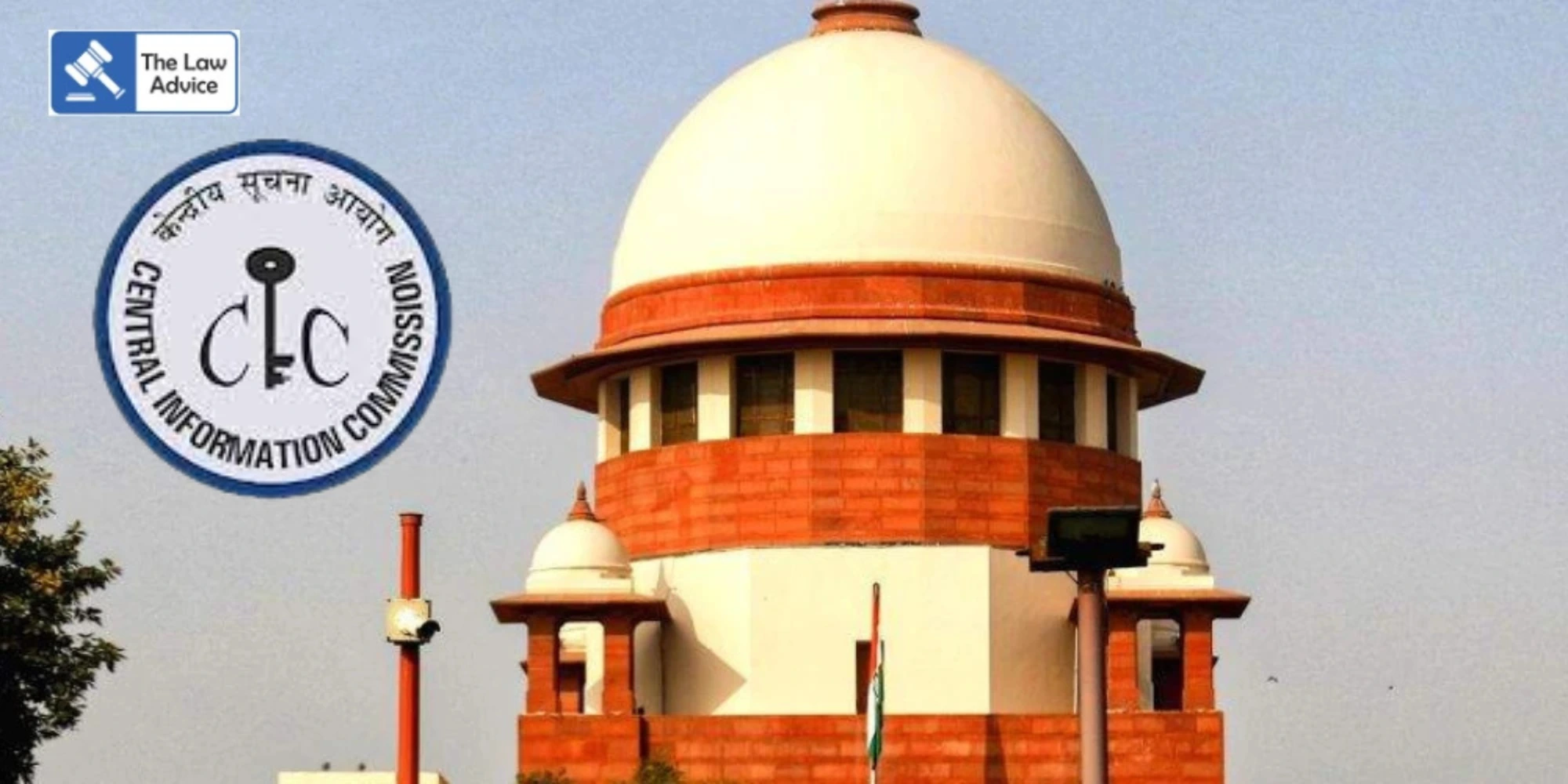
The Supreme Court on Monday refused to direct the Central Government to make public the names of candidates shortlisted for appointments to the Central Information Commission (CIC), observing that there was “no reason to doubt” the Union would comply with the transparency norms laid down earlier under the Right to Information (RTI) Act.
A Bench of Justice Surya Kant and Justice Joymalya Bagchi was hearing a public interest petition filed by RTI activist Anjali Bhardwaj, represented by Advocate Prashant Bhushan, regarding persistent delays and opacity in filling vacancies in the Central and State Information Commissions.
Bhushan argued that despite the Supreme Court’s previous directions to expedite and publicize the appointment process, the government had failed to comply. Referring to the January 7 order mandating disclosure of the search committee’s members and the list of applicants, Bhushan alleged the Union had disregarded the Court’s directions.
Additional Solicitor General (ASG) KM Nataraj informed the Bench that the shortlisting process had concluded and that the selection committee — comprising the Prime Minister, Leader of Opposition, and a Union Minister — would finalize appointments within two to three weeks.
Bhushan, however, objected that the shortlisting criteria and candidate names were still not made public, in violation of the Court’s past rulings. “They must disclose who has been shortlisted and on what basis before appointments are made,” he urged, adding that some appointees lacked RTI expertise and were allegedly chosen for political reasons.
Justice Kant acknowledged the delay but preferred to wait for the process to conclude. “You are right there has been a delay, but they are asking for a short time. Let’s allow them to complete it,” he said. Bhushan insisted that transparency must precede appointments.
ASG Nataraj countered that premature judicial intervention would be unwarranted and that any irregularities could be challenged post-appointment. Justice Kant agreed, noting, “If courts start examining every stage of selection, the process will never end. Transparency must exist, but there has to be procedural balance.”
The Bench assured Bhushan that the Court would step in if any ineligible person were appointed. “Appointments are not a fait accompli. We will intervene if necessary,” Justice Kant said.
Bhushan further questioned why several states had already disclosed shortlisted candidates while the Centre resisted doing so. “Why should citizens not know who is being considered?” he asked. Justice Kant responded, “We will ensure they disclose.” Yet, the Bench ultimately declined to issue a direction mandating such disclosure.
Recording its order, the Court stated:
“As regards the CIC, we are informed that the Search Committee has completed its exercise, and the Selection Committee comprising the Prime Minister of India, Leader of Opposition and a Union Minister will consider applicants within three weeks. We have no reason to doubt that the Union shall follow the guidelines laid down in Anjali Bhardwaj v. Union of India and finalize the process at the earliest.”
Bhushan also highlighted the inaction in Jharkhand, where the State Information Commission has remained non-functional since May 2020. The Court directed the Chief Secretary of Jharkhand to complete the selection process within 45 days and warned of strict action if compliance was not reported within the stipulated period.
Expressing frustration after the hearing, Bhushan remarked, “No government wants transparency. The best way to kill the RTI Act is by not appointing commissioners.”
It may be recalled that in January, the Court had asked the Centre and states to submit data on vacancies, timelines, and pendency before Information Commissions. Despite assurances that appointments would be completed by April 2025, the CIC continued to function with only two Information Commissioners, while over 26,800 appeals and complaints remain pending.
In September, petitioners noted that the post of Chief Information Commissioner was still vacant, and eight out of ten commissioner posts lay unfilled. Jharkhand’s State Information Commission also remains defunct since 2020.
Appearance: Advocates Prashant Bhushan and Rahul Gupta (for petitioners)
Case Title: Anjali Bhardwaj & Ors. v. Union of India & Ors., MA 1979/2019 in W.P.(C) No. 436/2018
Website designed, developed and maintained by webexy